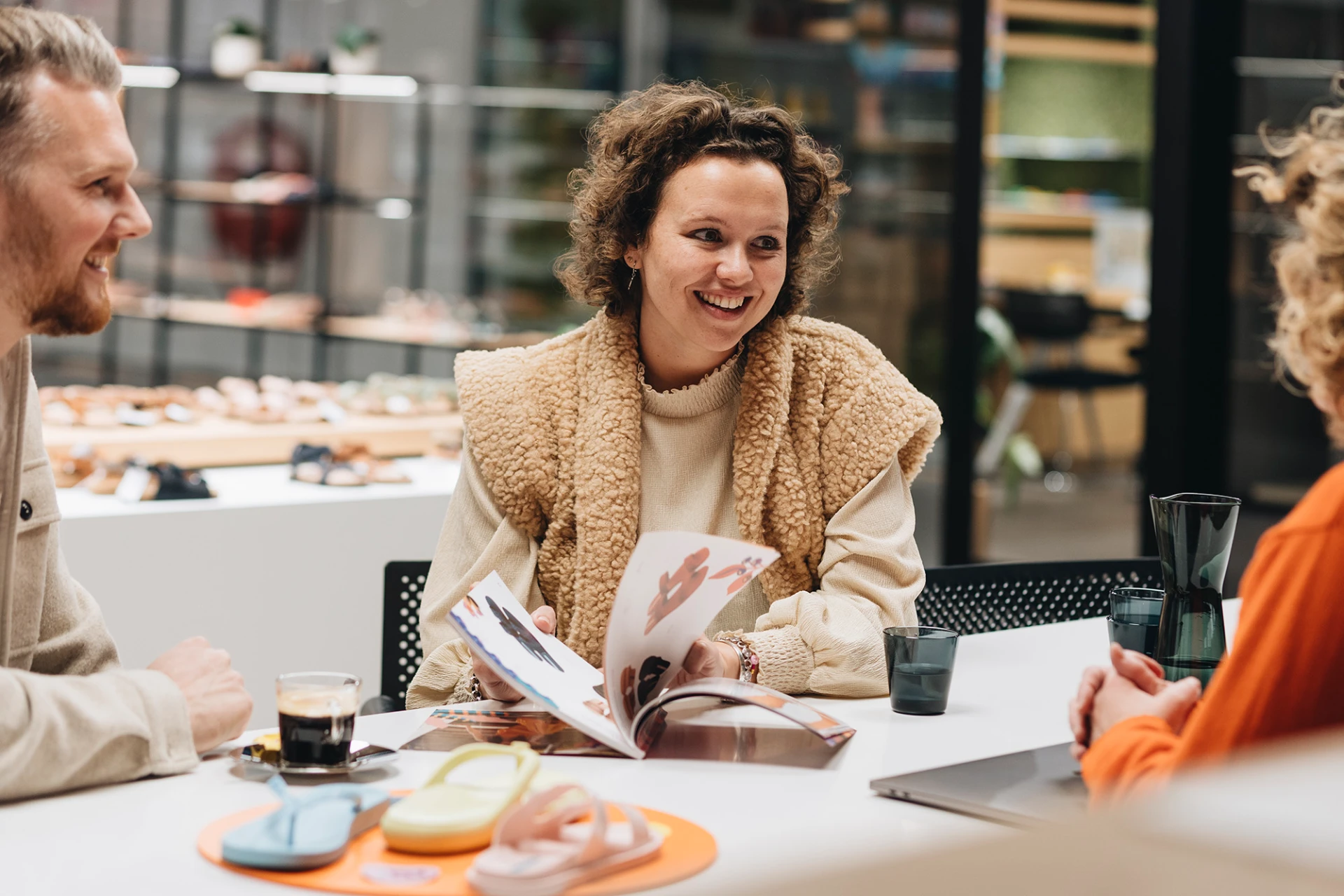This season, the Grendene sales convention, the annual introduction of our slipper brands' collections, was combined with inspiring tours with a focus on sustainability. Our colleagues saw for themselves how Grendene is committed to sustainability in three areas: product, people and planet.
After several digital editions of the international sales convention, this year the Grendene distributors were invited to Brazil. Marco Jorna and Inge Fidder together with sales colleagues Bart Roossink and Diana Vestering went to the manufacturer of our slipper brands. An important part of the meeting were the collection presentations, in addition extensive tours of the factories were given. Our colleagues saw how Grendene, the manufacturer of slipper brands Ipanema, Rider, Cartago, Zaxy and Grendha, tackles the challenges of environmentally friendly production.

"Innovation is everywere"
Grendene'ssustainability facts at a glance:
- 100% Recyclable and Vegan
- Each pair of slippers consists of at least 30% recycled material
- No toxic substances in the slippers and sandals
- Energy for production is sustainably generated and Grendene has its own solar power plant
- Fair working conditions, checked by Sedex, the largest platform for ethical trade
- All wastewater in the factories is recycled

Product
Grendene's slippers and sandals are made of Flexpand, a unique material that is recycled over and over again in the production process. Also, each pair of flip-flops or sandals consists of at least 30% recycled material. Flexpand is a PVC, one of the few materials that can be infinitely recycled. Its unique file components are designed to be durable and (literally) flexible to maximize the life of the product. Grendene also monitors and researches new sustainable raw materials to continuously integrate developments into the production process.
Algae slippers
In the search for new biological materials, Grendene presents the Ipanema Algae project, slippers made from seaweed and algae. Algae are essential organisms for the well-being of our planet, but when they grow in abundance, they can damage the ecosystem. Ipanema has found the solution to this: recycling! The sole and straps of the flip-flops are pigmented using algae and the flip-flops consist of 80% recycled material.

People
"Here, everybody takes care of everybody." Grendene pays attention to its employees. Fair working conditions and employee development are core values for the Brazilian manufacturer. Wellness, physical and mental health care are promoted in its eleven in-house factories and knowledge is shared in the Grendene University. Combating waste and reducing waste are other key components. "Really very impressive to see how the employees are involved in Grendene's sustainable vision. It is the basis of all processes." Marco Jorna, owner Antar Shoe.
Planet
Theglobal slipper industry is known for its enormous water consumption and impact on water resources and ecosystems. Grendene takes a very different approach to this. Marco says, "One of the most striking aspects was the impressive way the factory recycles the wastewater from the production process. All the water used is treated and reused at different stages of the production process or for watering the environment." This innovative system results in significant water savings and helps reduce the brand's carbon footprint.
This experience in Brazil inspired us and we saw firsthand that Grendene is the greenest slipper manufacturer in the world. All the innovation and technology that goes into the slippers - the circularity of the product, the way it is made and the carbon footprint - shows a commitment to sustainability that goes beyond fine words. Grendene has succeeded in producing high-quality and trendy slippers while minimizing its impact on the environment.















.webp)






.webp)
.webp)
.webp)





















